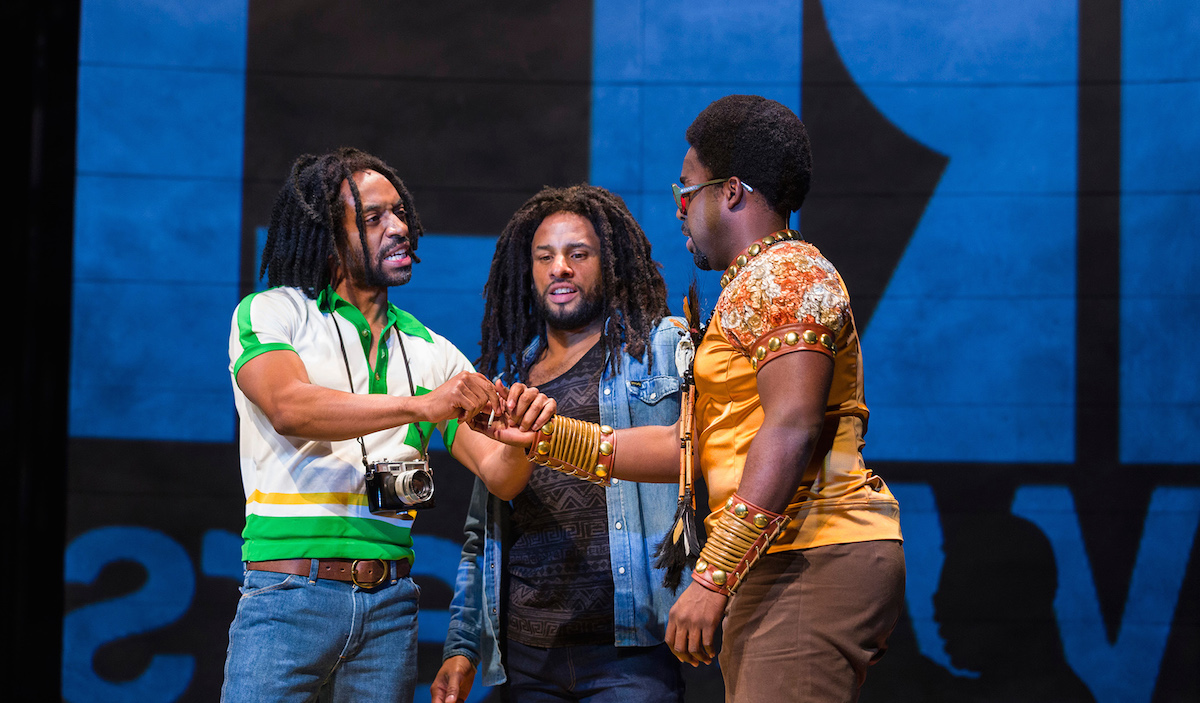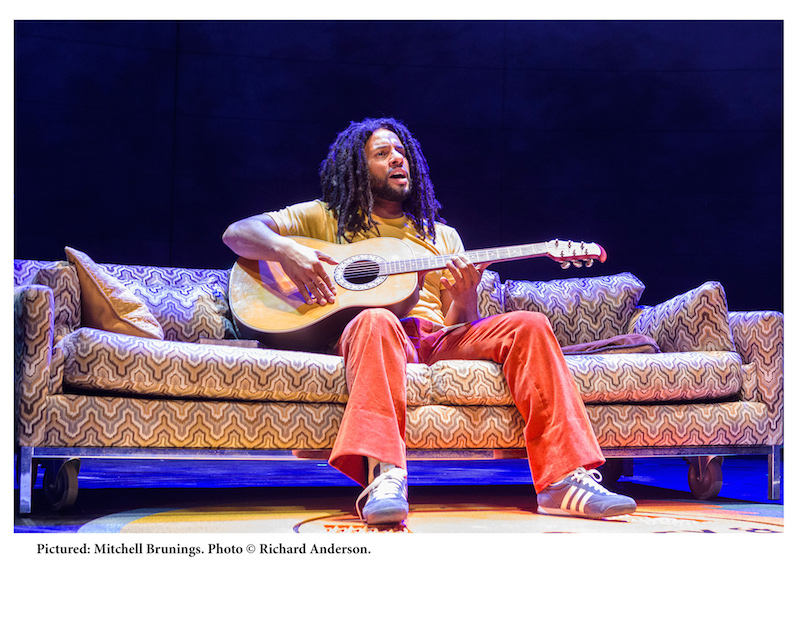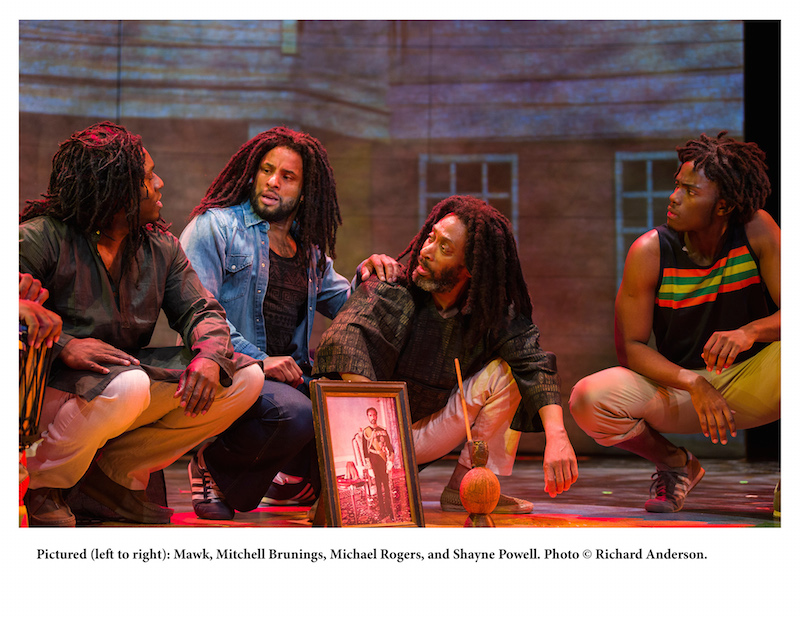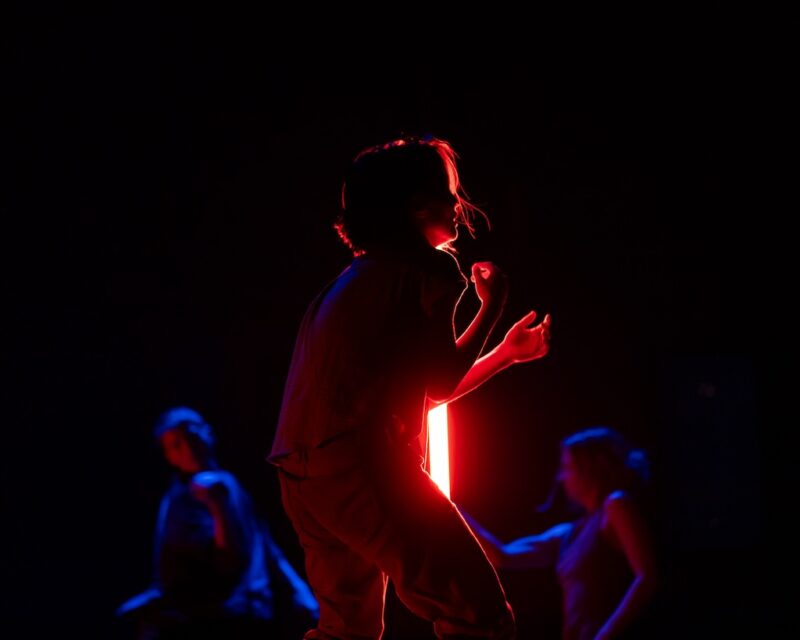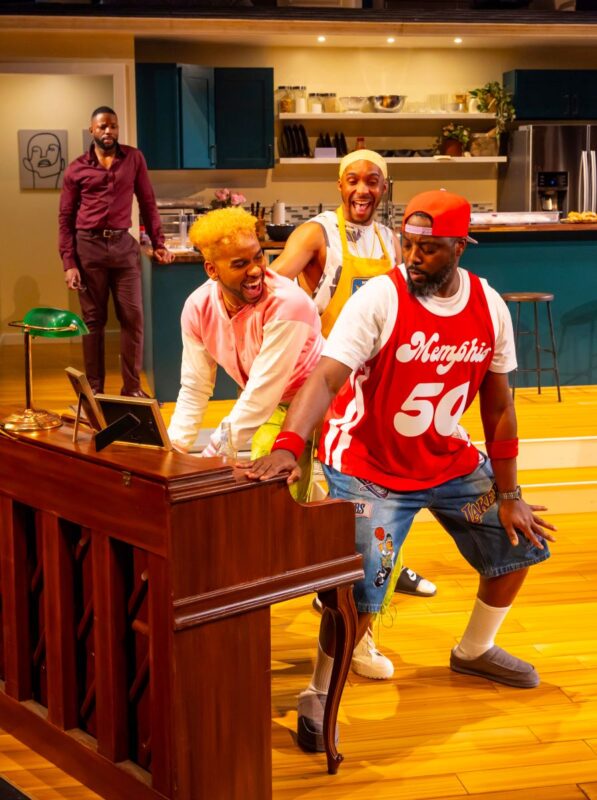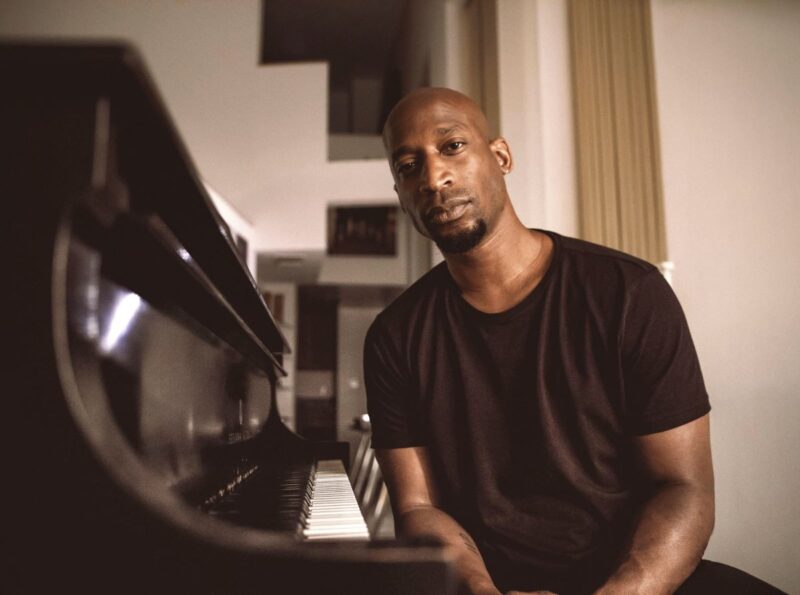Jermaine T. Bell on Marley at Center Stage
Politicians concerned only with their own selfish ambitions. Rioters using debris of crumbled buildings to fight in the streets. Militia camped on street corners, armed and ready to blow the first rabble-rouser to pieces. Concerts arranged with big name headliners-cum-peace ambassadors. Sound familiar, Baltimore? These are the key subplots in Marley, the new play by Kwame Kwei-Armah that premiered this month at Center Stage.
Marley hits the audience with hard social inequities and then soothes them with the sturdy, bass heavy choruses of Bob Marley’s songs, which now need very little introduction. It is important to make the distinction that this is a play with music, not a musical. Entering the theater the irony is taken a step further. Mock wreckage used to transport the viewer to the turbulent 1970’s Jamaica’s tenement suburbs Tivoli Gardens and Trenchtown may remind the viewers of some nearby downtown Baltimore storefronts. And, when the chorus of “I Shot the Sherriff” begin to play, one cannot help but to recall recent images of young black men peacefully protesting the curfew wearing t-shirts emblazoned with the words “Fuck the Police” being handled like cattle and doused with pepper spray by Baltimore City Policemen.
The first act of Marley acts as a reminder of the pieces we may or may not have gathered about Bob Marley via documentaries and rock magazines. We see Bob, his band, and their entourage move into the infamous home and recording studio given to him by Chris Blackwell of Island Records, with Rita, Bob’s wife, and their children in tow. We learn of Bob’s fear of abandonment via a flashback to 1972 when Marley, Peter Tosh, and Bunny Wailer first travel to London to meet with Blackwell and the recording of their first internationally released album, “Catch A Fire.” And, we witness the shooting where Bob, his manager, and Rita are shot by 65 bullets two nights before the Smile Jamaica concert at National Hero’s Park, where Bob performs despite injuries to calm rioters.
Act two in opens in 1977 in a flat on Oakley Street in dreary London. Bob spends a lot of this time questioning his purpose as a musician. He is diagnosed with cancer, has an affair with Cindy Breakspeare, and writes Exodus as a response to his own exodus. It’s in this act that Marley feels too big to be contained by Center Stage’s small theater. At other times it struggles to give weight to the milestone it is reenacting with seemingly under-designed projections of sand dunes in Ethiopia and nightclubs in Paris.
Although the acting in Marley was compelling, with the live musical performances at Center Stage the critical strength of this production, it feels staged to celebrate unity in a city still divided amongst class and race. When two full-bodied African American actors dance lasciviously together to a rock steady groove, the discomfort in the theater is palpable. When Bob suggests that his lawyer, Diane, serve his lounging crew of kinsmen juice after a game of soccer, it becomes clearer how Marley’s unintentional messages of misogyny and homophobia might have been the silent partner to his more strident message of one love.
However, when riding high on the medley of Bob’s hits that close out the show filled with positive affirmations of self-assurance and love, one would have to dig deep to disturb the groove and file a grievance.
Jermaine Bell is a Baltimore-based Graphic Designer and Writer.


